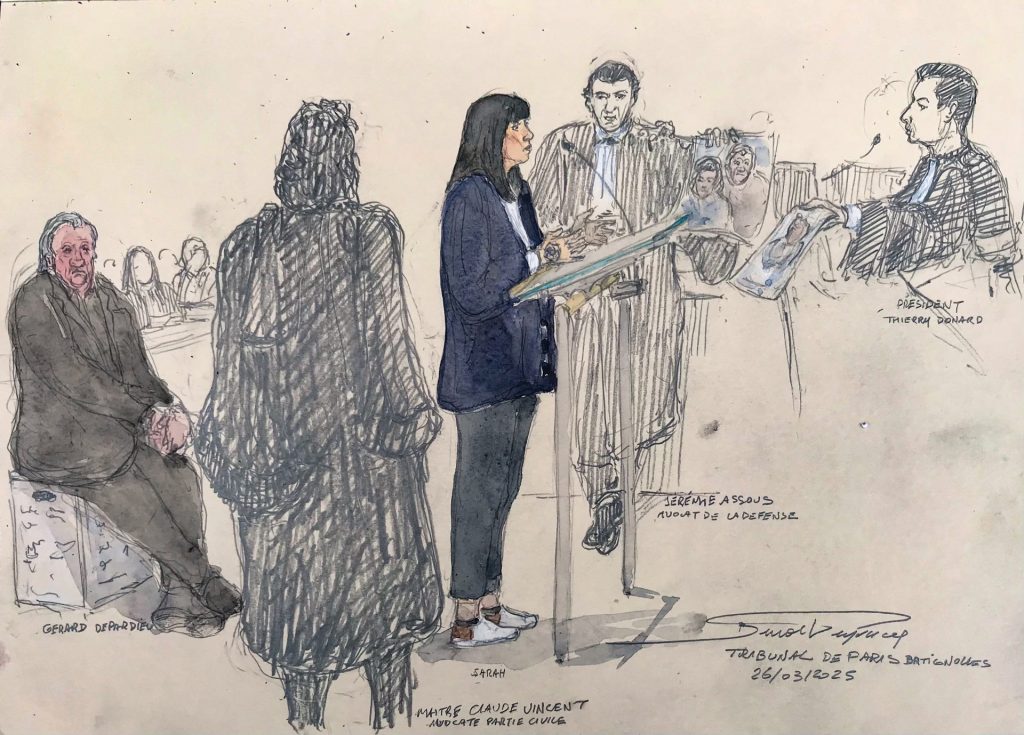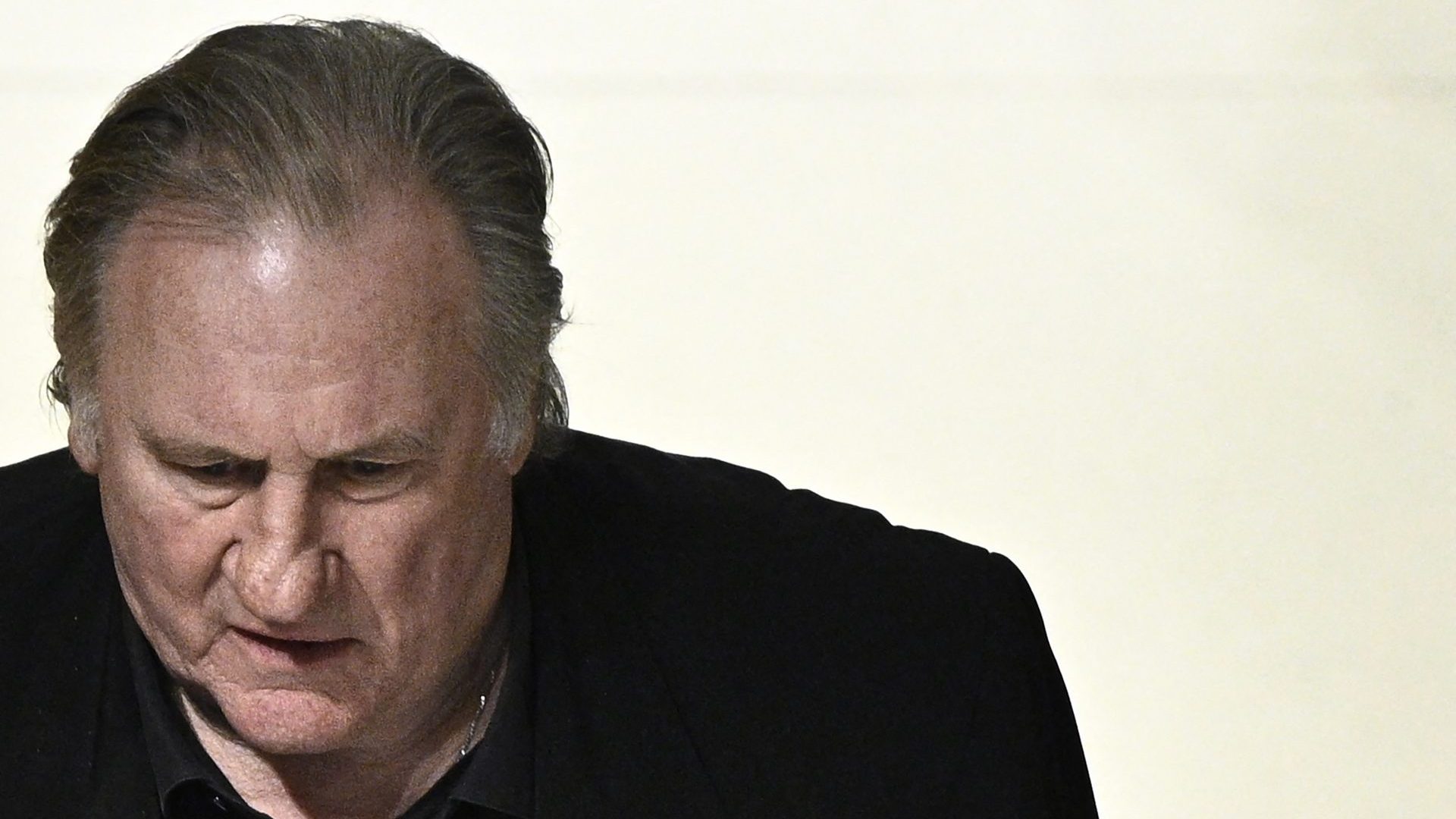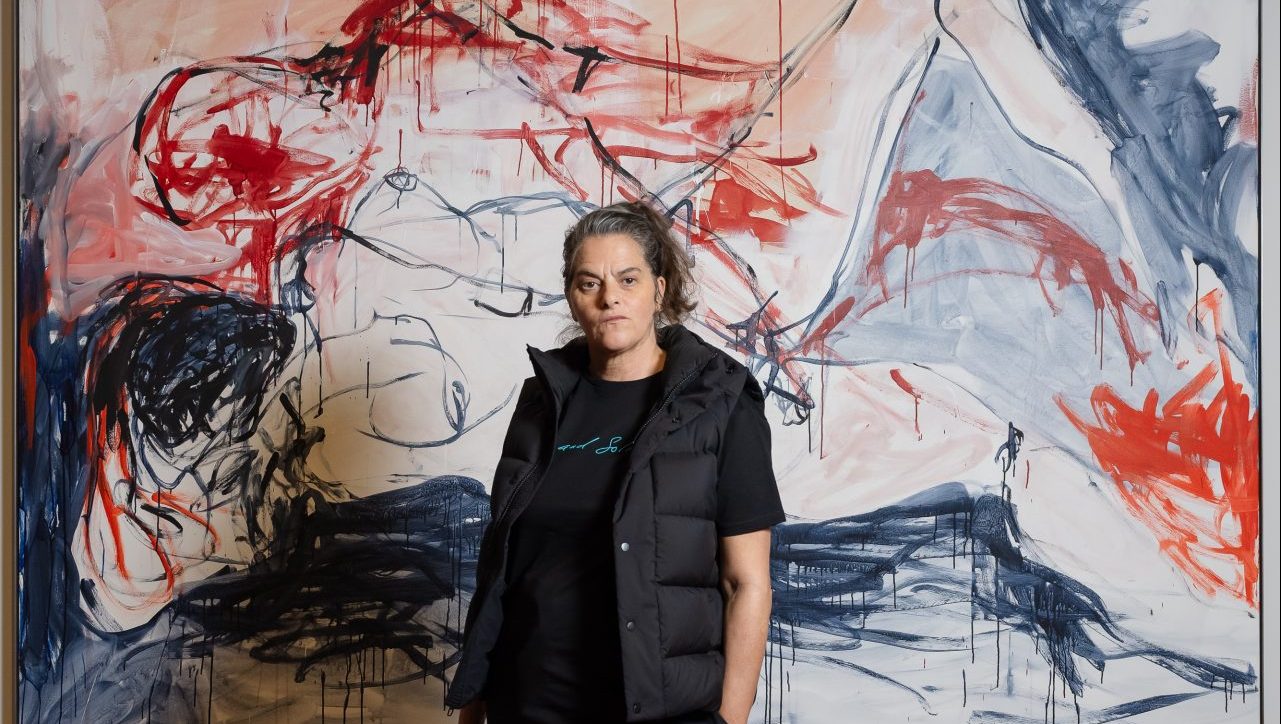Has the French justice system learned anything from #MeToo and the landmark gang rape trial victory of Gisèle Pelicot? The appalling courtroom victim-shaming, verbal aggression, and calculated retraumatisation of multiple women alleged to have been victims of sexual assault by French cinematic colossus Gérard Depardieu – along with the denigration and intimidation of their female lawyers – suggests the answer is a firm ‘No’.
Now a 76-year-old Russian citizen, Depardieu has long been in thrall to the dictators who have become his friends like Vladimir Putin and Belarus’s Aleksandr Lukashenko. He is also chummy with the Russian general and Chechen independence leader Ramzan Kadyrov. No surprise, therefore, that the actor hired a Kremlin-defending provocateur as his lawyer.
With his smoothly-oiled slicked-back hair and well-rehearsed attacks, Jérémie Assous used the courtroom as a stage to insult, humiliate, intimidate and defame the two women plaintiffs as “mythomaniacs” and liars who liked to look good on TV. The lawyer, who has defended Russia Today (RT) in French court cases and been described as a leading spreader of Moscow disinformation in France, was given virtually free rein inside and outside the court to discredit and attack brave women coming to give evidence. Perhaps most shockingly, he threatened another alleged victim of Depardieu’s, Charlotte Arnould, who was sitting in the courtroom as an observer.
Meanwhile, 76-year-old French actress Fanny Ardant clearly thought she was acting in a new double-bill role with Depardieu, her onscreen partner in multiple iconic films, including 1981 thriller The Women Next Door, the penultimate film of her former lover François Truffaut. Ardant, a close friend of Depardieu, illuminated what many see as the deep complicity of a dwindling group of prominent culturati women of a certain age, with the ‘old world’ of institutionalised French tolerance of sexual harassment and abuse of vulnerable and minor women.
During his three days at the Palais de Justice, shuffling in his oversized black jacket and unbuttoned shirt, Depardieu was helped to walk by a young aide carrying his affairs. He did not shy away from playing up his obvious health problems. Puffy-faced, obese, and struggling to move, the actor still found enough energy to minimise his actions and applaud his lawyer’s mockery of the victims and their lawyers.
Anyone waiting for a shred of remorse or a mea culpa from the actor and his odious lawyer can wait a lot longer. During four days of hearings, with the accused being called a “sacred monster” and “ogre” of Gallic film in the local press, state prosecutor Laurent Guy outlined allegations of how Depardieu committed sexual assaults against Amélie and Sarah – two women who wish to remain anonymous – during the filming of Les Volets verts (The Green Shutters) in 2021. Guy asked for him to be given 18 months of suspended prison time and a €20,000 fine.
The prosecutor’s case was built on the consistency of the plaintiffs’ statements, Depardieu’s struggle to keep his story straight, eyewitnesses to Amélie’s assault, and Sarah’s telling text messages to a friend: “Gégé has been touching me since yesterday, it’s driving me crazy, I feel like slapping him.”
But Depardieu showed no self-reflection. Guy requested mandatory psychological treatment for the actor, saying that “understanding the reasons that lead to such actions would not be entirely useless.” Assous pleaded for acquittal, calling the cases “entirely fabricated” and accusing the plaintiffs of being motivated by “hatred” and a desire for “revenge” against Depardieu. The trial, Assous argued conspiratorially, was part of a broader “agenda” to bring down the actor.
Lawyers for Amélie and Sarah, Carine Durrieu-Diebolt and Claude Vincent, demanded €12,000 and €10,000 in damages for moral harm, citing the abuse suffered by their clients at the hands of a “misogynist among misogynists,” driven by a “sense of omnipotence” and protected by a “system of impunity.”
The concept of secondary victimisation – the re-traumatisation of victims by failures in the judicial process – was invoked by the plaintiffs’ lawyers, who argued that the defence lawyer’s methods were adding to the suffering of the two plaintiffs.

In repeated attacks that attracted widespread fury, Assous took aim at his colleagues, dismissing them as “activists more than lawyers” and claiming that questioning the plaintiffs’ testimony was an act of “aggression.” He snickered in court about the “hysterical laugh” of one of the counsel and used words like “abject”, “vile” and “stupid” to described them.
In his words, “Today, there is no more nuance when it comes to sexual violence. And you are dealing with individuals who think that simply asking a question, confronting a plaintiff with her contradictions, is contributing to her humiliation.”
Throughout his closing argument, Assous didn’t just attack the plaintiffs, but launched an all-out assault on the #MeToo movement, which he described as an aggressive feminist campaign.
He accused the accusers and their lawyers of being part of a larger “organisation” of “angry feminists” who sought to bring down powerful men. In his words, the movement was an attack on men in positions of influence, and the case against Depardieu was nothing more than a “campaign” against the actor’s legacy.
The remarks infuriated feminists and other actresses including Judith Godreche, who was raped and subject to sexual slavery by a director in her teens. She called Depardieu’s lawyer an absolute “hellish nightmare”.
In full conspiracy theorist flight, Assous likened the treatment of Depardieu to Robespierre’s Terror during the French Revolution, suggesting that the justice system had become part of a mass ideological purge. In remarks to the media, the lawyer continued painting himself as the defender of a man trapped by an oppressive, politically motivated system, with Depardieu now a victim like the Russian dissident Alexei Navalny, who died in Russian custody, and he as Navalny’s lawyer.
Among the most appalling developments of the trial came during Assous’ direct attacks on Charlotte Arnould, the actress who had accused Depardieu of raping her years earlier and who came only as a silent observer to the courtroom. Pointing to and referring to Arnould as a “pathological liar,” Assous further humiliated her in front of the court. “She comes to the trial every day… Do you know many rape victims who show up every day to see their rapist?” he sneered. Arnould was so overwhelmed that she left the room in tears.
Ardant delivered one of the most-watched moments of the trial when she swept into the courthouse. Dressed in dark glasses with a white uniform collar and a tightly cinched leather belted black bodice and looking somewhat like a school principal ready for a high class bondage and discipline party, she took the stand in her friend’s defence.
Ardant passionately argued that Depardieu’s actions were misunderstood, defending him as a man who “takes up space” and is deeply committed to his craft. “Gérard has played all his characters by giving everything of himself, with the worst and the best,” she said. “Every form of genius carries within it something extravagant, rebellious, and dangerous.” She stressed that this very uniqueness made him an artist capable of moving audiences “from Cuba to Vladivostok” because, as she put it, “no one can relate to Mr. Perfect.”
She continued: “He loves this profession, he loves cinema, he loves theatre… He mocks, he provokes. Yes, Gérard takes up space on a film set. Yes, he has a big mouth. Yes, he says vulgar things.
“This profession of acting can only be pursued at the risk and peril of one’s own life. And fear should not be a way to make citizens obey. Fear should not serve as morality.”
Why did she agree to testify? She answered candidly: “I know the world has changed (…). Many did not come to defend Gérard because they were afraid of losing their careers… When I received the letter summoning me to testify, I no longer wanted to come. But then I told myself that if I didn’t come to defend my friend, I would reproach myself for my cowardice for the rest of my life.”
The fine monologue fell on unimpressed ears. “We are not here to engage in moral debates; we are here to uphold the law,” said the judge. “The charges against Mr. Depardieu are those of sexual assault.”
He then questioned the actress on whether she had witnessed any inappropriate behavior during the filming of Les Volets verts, in which she had a supporting role. Her response? “I, Fanny Ardant, have never witnessed any gesture that I would have found shocking,” she assured. “Gérard is someone you can tell to be quiet. I myself am a woman. I have experienced things like this. I fought back. I slapped, I insulted… But I did not witness that. I have always loved being with Gérard because I love life – with its violence, its joy, its sadness, its despair, and suddenly, its kindness, its soft voice.”
Following her testimony, Ardant embraced Depardieu and kissed him on the cheeks.
Depardieu, who denies the allegations against him and will hear his fate on May 13, at times appeared to acknowledge that he was a dinosaur from another époque such as when he referred to one of the women’s lawyers as “mademoiselle”. Brought to order by her female counsel who, like male counsel must always be addressed as “maitre” or master, he muttered, in almost whispered remarks reported by Le Monde: “I don’t think the new world interests me. I feel less and less at ease in this new society. I think my time is over.”
Depardieu also spoke in his defence in remarks that sparked an outcry, notably among the dozens of women assembled in protest out the front of the court.
“I am incapable of defining sexual assault before a court that is judging me for it. I don’t know what it is,” he said, addressing the lawyer of one of the plaintiffs. “It’s very rich in lessons for an actor. It’s as if we were in a science fiction movie, but it’s reality, it’s life. I thank you from the bottom of my heart; I’ve learned a great lesson, especially from the lawyers. I might imitate them one day, if, however, I ever got the idea to play a lawyer.”



